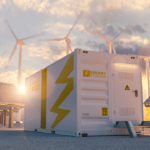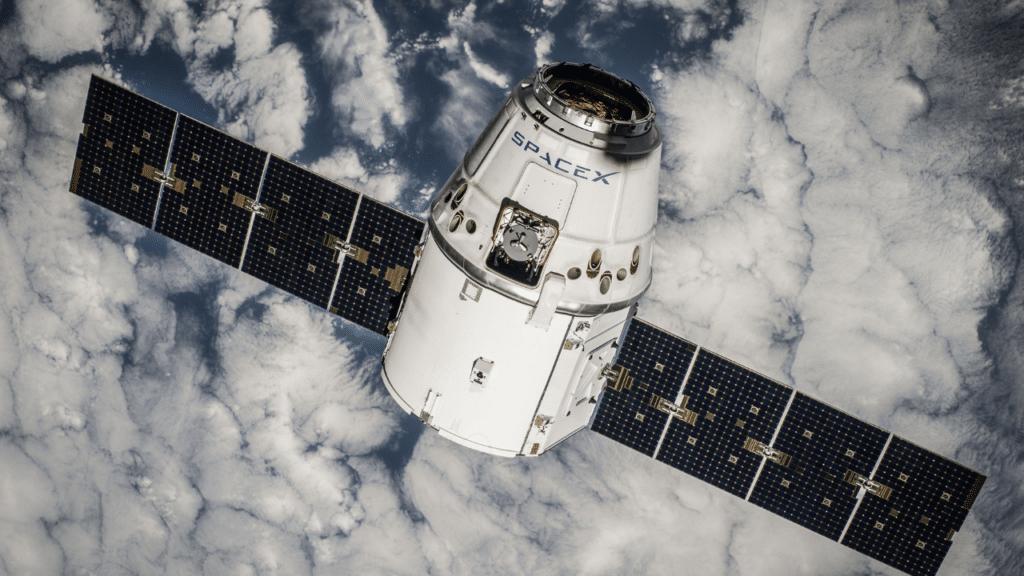Why Big Money is Flowing into “Long-Term” Battery Storage


Countries across the globe are in a race to transition to renewable energy, which is why the battery energy storage market worldwide is expanding and is expected to surpass $17.5 billion in 2028, Statista data showed.
What is Battery Energy Storage and How Important is it?
Renewable energy is energy that is obtained from natural resources like sunlight and wind. These clean energy sources are plentiful and can be easily replenished. On the other hand, fossil fuels are non-renewable resources that take a long time, maybe hundreds of millions of years, to form. And when burned to produce energy, they emit harmful greenhouse gas emissions, like carbon dioxide. To address the climate crisis, it is necessary to transition from fossil fuels to renewable energy.
But what happens when there is no sunlight or wind? That is where the battery storage comes in. Batteries are used to store surplus renewable energy so that it can be used later in the absence of sunlight or wind.
Lithium-ion batteries are capable of storing energy for about four to eight hours. But with the energy storage space heating up, long-duration energy storage is needed to allow the economy to truly run intermittent renewable power sources and back it up after grid disruptions.

How Reliable and Affordable are the Long-Duration Batteries?
Long-term battery storage can store clean electricity for more than 10 hours at a time and can support a low-cost, reliable, carbon-free electric grid. In July 2021 the US Department of Energy (DOE) set a new goal to reduce the cost of grid-scale, long-duration energy storage by 90% within the next ten years. It is also targeting, within the DOE’s Energy Earthshot Initiative, to accelerate breakthroughs that store renewable energy longer and make it available anytime, anywhere and support more abundant, affordable and reliable clean power solutions.
“We’re going to bring hundreds of gigawatts of clean energy onto the grid over the next few years, and we need to be able to use that energy wherever and whenever it’s needed,” US Secretary of Energy Jennifer Granholm said in a statement. “That’s why DOE is working aggressively towards cheaper, longer duration energy storage to reach President Joe Biden’s goal of 100% clean electricity by 2035,” Granholm added that the initiative will create new manufacturing jobs in the country and make clean, reliable and affordable energy available to people across the country, including Americans living in remote and underserved communities.
The DOE’s Energy Earthshot Initiative aims to remove carbon dioxide from the atmosphere and store it for less than $100/net metric ton of CO2 equivalent within a decade. Decarbonize with the use of alternative sources of carbon the fuel and chemical industry to advance cost-effective technologies; lower the cost of enhanced geothermal systems by 90% to $45 per megawatt hour by 2035; lower the cost of clean hydrogen by 80% to $1 per kilogram within 10 years; develop affordable industrial head decarbonization technologies with at least 85% lower greenhouse gas emissions by 2045. Reduce the cost of grid-scale energy storage by 90% for systems that deliver more than 10 hours of duration within the decade, and lower by 50% the cost of energy-efficient retrofits in affordable homes and reduce residents’ energy costs by at least 20% within the next 10 years.

Investments
Venture Capital Funding in global energy storage came in at $9.2 billion in 2023 with 86 deals, a year-over-year increase of 59%, according to a report released by research firm Mercom Capital Group in January 2024.
Below are some of the more notable funding in recent years:
Zenobe
British battery storage company Zenobe secured more than $1 billion of fresh capital from investors in September last year including KKR & Co and M&G’s infracapital arm. The company aims to use the funding to fuel the expansion of its fleet electrification and grid-scale battery storage business, accelerating the decarbonization of fleet transportation, like school buses and maximizing the uptake of renewables. Zenobe currently supports more than 1,000 electrical abuse, trucks and commercial vehicles across the globe, and has worked with operators to deploy vehicles in over 75 depots ranging from Glasgow and Coventry in the UK to Syden and Melbourne in Australia.
Redwood Materials
In August 2023, the Nevada-based battery recycling startup Redwood Materials raised more than $1 billion in new funding. The company said it will use the Series D funding to continue building its capacity, expanding the domestic batter supply chain, and allowing its customers to purchase batter materials made in the US for the first time.
Verkor
French battery maker Verkor secured in September last year funding of more than $2 billion to build its Dunkirk gigafactory and manufacture high-performance, low-carbon battery cells. The largest equity raise for a French startup Macquarie Asset Management, through its Energy Transition Solutions Fund, was the lead investigator in Verkor’s Series C funding round.
Energy Vault
In August 2021, Switzerland-based firm Energy Vault announced $100 million in Series C funding, led by Prime Lovers Lab, Saudi Aramco and Softbank Vision Fund. This capital raised was used to support the execution of the company’s growth plans as it ramps up multi-continent deployments of its EVx™ platform, including fulfilling a strong pipeline of customer agreements across the markets in the US, the Middle East, Europe and Australia. The company’s technology – gravity-based, grid-scale energy storage – is designed to be cost-efficient, reliable, fully safe to operate and environmentally sustainable. In September 2021, the company announced a special purpose acquisition company (SPAC) with Novus Capital II in a deal that landed the energy storage venture on the New York Stock Exchange.
DOE funding
The DOE announced in September last year it selected nine proposals for long-duration energy storage test projects that will receive a total funding of $325 million. Two of the winners, ReJoule and Smartville, received funding to repurpose used electric car batteries for resilient power in low-income communities.










